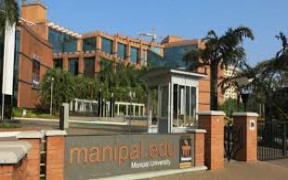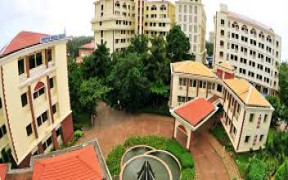Why Choose MSc Cardiac Catheterization & Interventional Technology in Bangalore
Bangalore is a significant hub for advanced cardiac care in India, home to leading heart clinics, cath labs, and interventional cardiology units. Pursuing an MSc in this specialty in Bangalore offers hands-on training in coronary angiography, stenting, hemodynamic monitoring, electrophysiology, and complex interventional procedures. Being in this environment connects students with clinical innovators and state-of-the-art infrastructure, preparing them thoroughly for careers in high-stakes cardiac support roles.
What Makes the Best MSc Cath Lab Colleges in Bangalore Stand Out
The Best MSc Cardiac Cath Lab Colleges in Bangalore share several key strengths:
-
Comprehensive Curriculum: Core subjects include cardiac anatomy, catheter design, interventional techniques (angioplasty, stenting), hemodynamics, vascular access, device handling, radiation safety, and emergency protocols.
-
Clinical Immersion: Regular rotations in active cath labs, EP suites, and CCU settings with live support during angiographies, PCI procedures, and device implantations (pacemaker/ICD).
-
State-of-the-Art Infrastructure: Facilities feature digital imaging systems, biplane cath lab units, intravascular ultrasound, pressure-wire testing setups, and high-fidelity simulation labs.
-
Expert Faculty & Mentors: A team of interventional cardiologists, cardiac technologists, radiology specialists, and emergency care providers guide students through advanced procedural learning and crisis response.
-
Robust Hospital Collaboration: Partnerships with reputed cardiac centres ensure student access to Cath lab workstations, patient monitoring systems, and electrophysiology diagnostics.
-
Career-Focused Training: Career cells support placement into roles in cath labs, CCUs, interventional labs, and biomedical technical services in hospitals.
Eligibility & Admission Process
Eligibility and admissions typically require:
-
A bachelor’s degree in Cardiac Technology, Medical Laboratory Technology, Nursing, or related life sciences stream with at least 50% aggregate.
-
Some colleges conduct entrance tests and clinical aptitude interviews to assess knowledge of cardiac science and technical skill.
-
Admissions usually open between May and July, with new batches commencing in July–August.
Curriculum Structure & Learning Outcomes
The two-year MSc program offers a blend of classroom lectures, simulation-based training, and clinical rotations:
Year 1 (Foundation)
-
Advanced cardiovascular anatomy & physiology
-
Principles of catheterization & vascular access
-
Cardiac imaging technologies (fluoroscopy, IVUS, OCT)
-
Radiation Physics & Safety in cath units
-
Hemodynamic monitoring & data interpretation
-
Clinical pharmacology for interventions
Year 2 (Applied Skills)
-
Percutaneous coronary intervention (PCI) techniques
-
Pacemaker and ICD implantation support
-
Electrophysiology study support services
-
Hemostasis, post-procedure care & complication management
-
Emergency response / ACLS in cath labs
-
Research project / dissertation & quality assurance initiatives
Graduates gain skills in setup and management of cath lab procedures, radiation-safe conduct, patient monitoring, emergency care support, and documenting interventional data.
Career Opportunities & Growth Outlook
Graduates from MSc Cath Lab Colleges in Bangalore are well-prepared for roles such as:
-
Clinical Cardiac Technologist in Cath labs or EP labs
-
Hemodynamic Monitor Specialist
-
Interventional Procedure Coordinator
-
Cath Lab Equipment Supervisor
-
Cardiac Device Support Technician (pacemakers, ICDs)
-
Cath Lab Nurse Assistant
-
Cath Lab Quality Assurance Officer
-
Biomedical Device Trainer for cardiovascular systems
-
Research associate in cardiology units
-
Clinical educator in cardiac technology
Salary prospects: Entry-level roles usually fall in the ₹5–8 LPA range. With experience, certifications, and supervisory responsibilities, mid-career professionals can earn ₹10–15 LPA. Leadership roles or clinical coordinators may reach ₹15–20 LPA or higher.
How to Choose the Best College for MSc in Cardiac Cath Lab
Key criteria to evaluate include:
-
University Affiliation & Accreditation: Ensure recognition of degree by health education bodies.
-
Clinical Training Facilities: Real-world labs with high procedural volume and diverse case exposure matter greatly.
-
Faculty Expertise: Prefer programs led by interventional cardiologists, EP specialists, and cardiac technologists.
-
Cath Lab Infrastructure: Digital imaging systems, vascular devices, and simulation mannequins are essential.
-
Internship & Placement Records: Documented placements in cardiac departments, cath labs, or device companies improve outcomes.
-
Student Feedback: Current trainees and alumni provide insights into real training quality and clinical access.
-
Research & Certification Opportunities: Programs including dissertations, workshops, and continuing education raise career readiness.
Fee Structure & Financial Assistance
Typical annual fees range from ₹1 Lakh to ₹2.5 Lakhs, based on clinical infrastructure and faculty. Popular financial assistance options include:
-
Merit-based scholarships
-
Institutional or cardiac centre-linked waivers
-
Interest-free installment plans
-
Education loan facilitation supported by the college
Application Tips to Strengthen Your Profile
To enhance your admission chances:
-
Highlight any practical experience in cath labs, CCUs, ICU internships, or cardiac nursing.
-
Complete CBT or training credits in ECG, hemodynamic monitoring, or catheter systems.
-
Write a statement of purpose showing keen interest in interventional cardiology and hands-on tech support.
-
Go over cardiovascular anatomy, sterile techniques, and intervention protocols before interviews.
-
Attend lab demonstrations or open houses to evaluate faculty and equipment readiness.
Final Thoughts
An MSc in Cardiac Catheterization & Interventional Technology from Bangalore prepares you for life-saving technical roles in modern cardiology. With its live cath lab exposure, high-tech equipment, structured training, and expert faculty, you'll graduate ready for impactful work in cath labs, CCUs, biomedical support, or academic settings. Opting for one of the Best MSc Cath Lab Colleges in Bangalore ensures a career aligned with precision, innovation, and meaningful patient outcomes.
List of Best MSc Cardiac Catheterization and Interventional Technology Colleges in Bangalore
There are nearly 3 best private MSc Cardiac Catheterization and Interventional Technology colleges in Bangalore, provide MSc Cardiac Catheterization and Interventional Technology.
Found 3 Colleges
Manipal University Bangalore
Bangalore, Karnataka | Established: 1953
Affiliations: Deemed University | Accreditations: NAAC A++
Yenepoya University Mangalore
Mangalore, Karnataka | Established: 1992
Affiliations: Deemed University | Accreditations: NAAC A+
Yenepoya School of Allied Health Science Mangalore
Mangalore, Karnataka | Established: -
Affiliations: Private College | Accreditations: NAAC A+
Enquire Now




